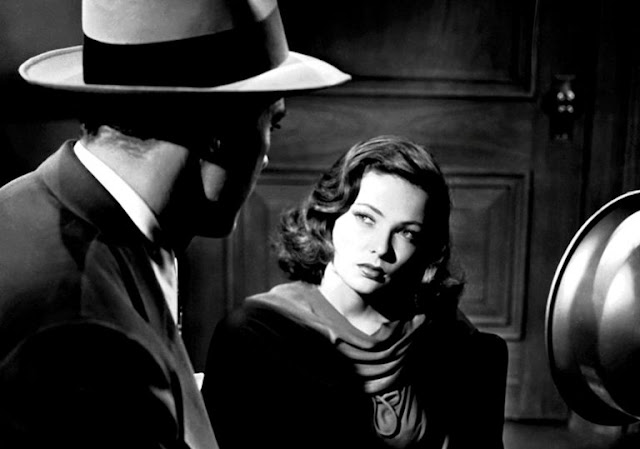Laura
There are times when nothing besides some vintage film noir will do. Such a seductive environment: shadowy black and white world of fedoras and drifting cigarette smoke, flask clutching. Of world weary detectives and the "dames" who keep everyone guessing. For me, it doesn't matter if the film is a classic like THE BIG SLEEP or any number of Boston Blackie programmers or even grade Z cheapies. The dreary world itself is just so oddly appealing, regardless if the patented fast talk is Oscar worthy or mere screenwriter dreck or if the editing is sloppy.
1944's LAURA is quintessential noir, surely one of the best of the genre and arguably one of the best films of its era. Otto Preminger went on to direct many great films like ANATOMY OF A MURDER, but I think this one is my favorite. And he almost didn't direct LAURA, signed on originally as only producer but inheriting the project after multiple screenplay revisions, studio drama, and the firing of director Rouben Mamoulian. His instincts for the script and casting were subject to much studio interefernce. Studio head Darryl Zanuck was displeased with Preminger's original conclusion to the film and forced a reshoot, in the "it's only a dream" mold. When Walter Winchell expressed bewilderment with it after a screening, Zanuck conceded and the original ending was used. Thank heavens.
LAURA begins with the curt narration of columnist Waldo Lydecker (Clifton Webb), his discussion of the recent murder of Laura Hunt (Gene Tierney), a woman with whom he grew very close. Clearly, he was in love with her. But was it a more paternal or fraternal love? Waldo seems awfully fey. His hilarious, blunt barbs against pretty much everyone else provide endless future quoting opportunities or even Facebook statii, lest one wants to come off as a (articulate and darkly witty) crumudgeon.
In flashback we see that Laura was not always the strong willed ad exec. When she first approaches Lydecker at his daily luch at the Algonquin Hotel, he tries to brush her off. But soon he is mentoring and grooming her to move deftly through high society. Her beauty and sophistication attract a parade of suitors who are summarily rebuffed by Lydecker through his considerable contacts and influence. He's a jealous one. The pair have regularly scheduled dates and behave like staid long-marrieds.
Complicating things is Shelby Carpenter (Vincent Price), a smooth but dense playboy who becomes her fiance, much to the chagrin of Laura's aunt Ann (Judith Treadwell) who desires him enough to try to buy his love. As detective McPherson (Dana Andrews) questions everyone he begins to become smitten with the deceased, an obsession not unnoticed by Lydecker. Jay Dratler, Samuel Hoffenstein, and Elizabeth Reinhardt's screenplay gets typically serpentine before the final fade out. The central twist involves the corpse itself.
But LAURA never gets convoluted. This is a foremost a character driven story wrapped in a somewhat clever whodunnit. Plot developments are designed to allow each character to reveal themselves through crackling dialogue, not simply to call attention to themselves. I've sat through many complicated mysteries that were pleased with their own twists, soulless exercises in contrivance. Who cares if there's a triple cross if the characters aren't well defined or even the slightest bit interesting? Watch the Laurence Fishburne/Ellen Barkin drama BAD COMPANY for a perfect example of how not to do it. In contrast, the great noirs made the heroes, heroines, and rapscallions alike fascinating, and sometimes filled with delicious contradictions.
And it's just so soothing to be drawn into that netherworld, a world LAURA so easily inhabits.



Comments